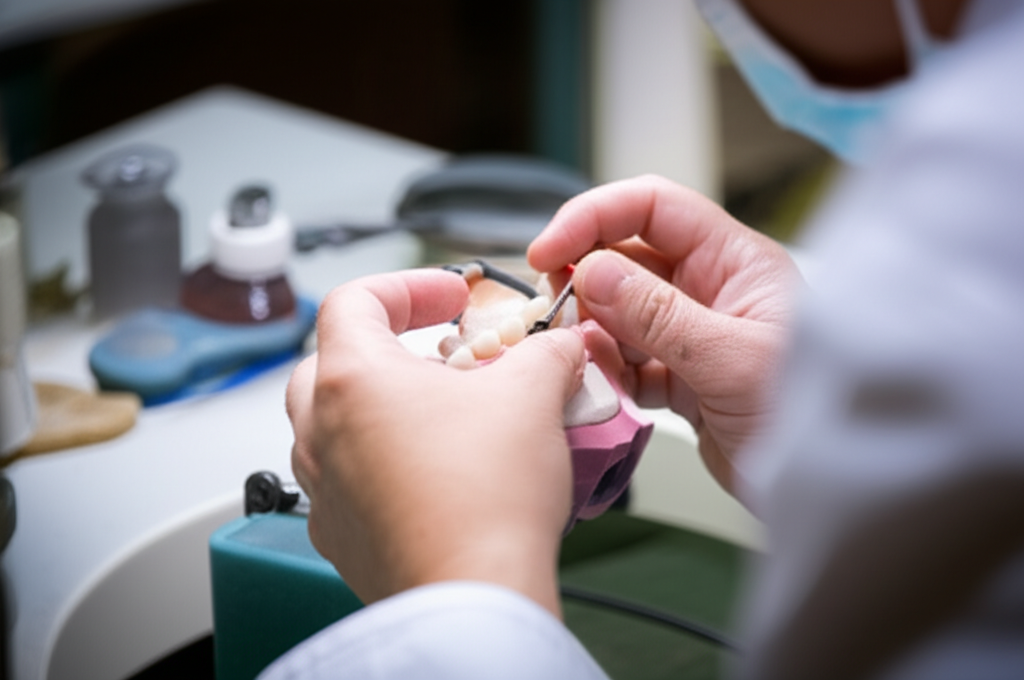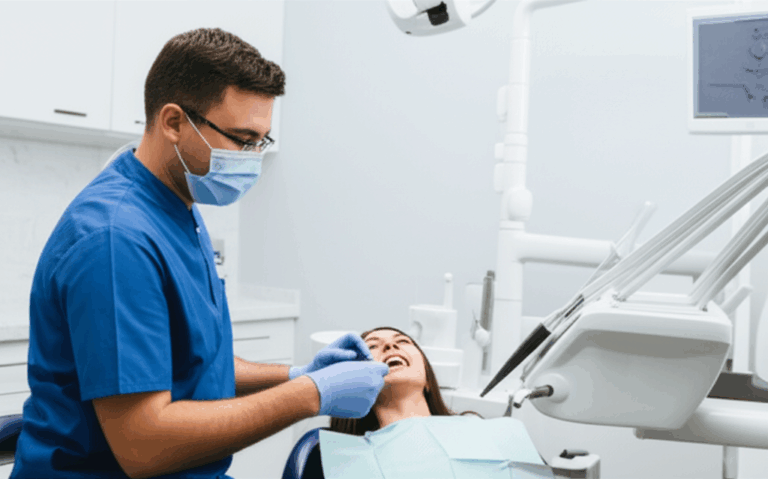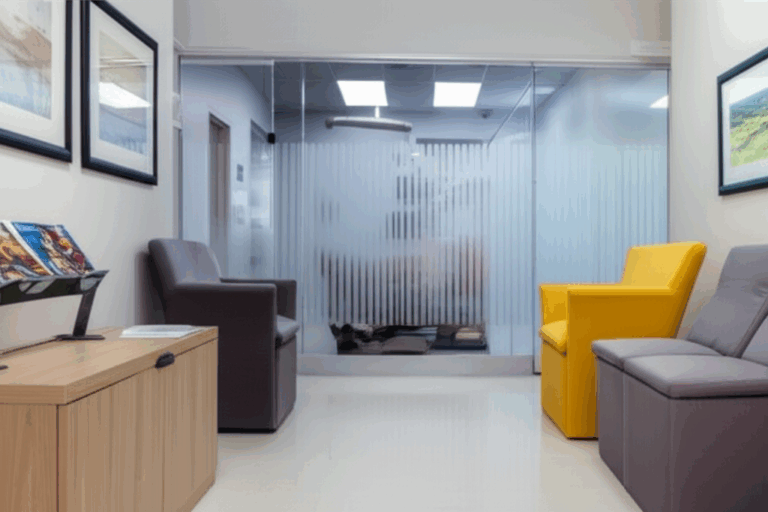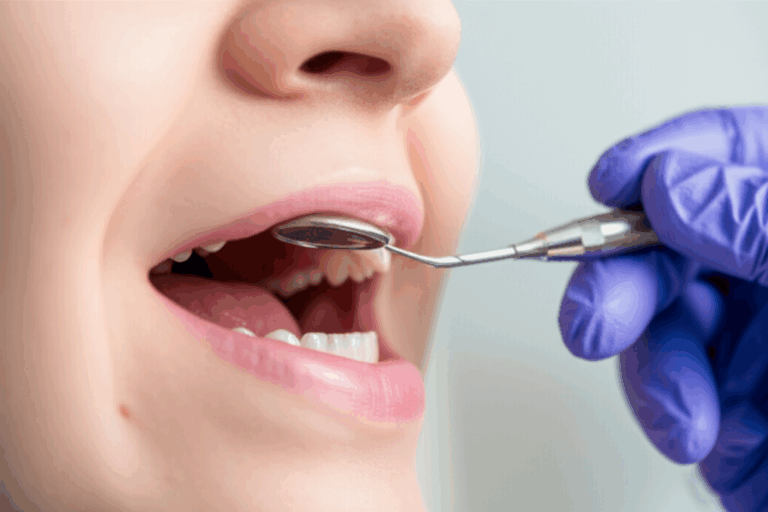
What is a Clinical Dental Technician (CDT)? Your Expert Guide to Denture Specialists
By Someone Who’s Learned From First-Hand Experience
Table of Contents
- Direct Patient Care Services
- Scope of Prostheses
- CDT vs. General Dentist
- CDT vs. Dental Laboratory Technician
- Regional Terminology
Introduction: Demystifying the Clinical Dental Technician (CDT)
When I first heard the name “Clinical Dental Technician” (or CDT for short), I was honestly a bit confused. Was this just another way to say “dentist,” or something else? After being part of different dental teams and getting help myself, I learned that CDTs are special dental workers who help people with dentures—both by talking directly to patients and by actually making the dentures.
To put it simply, a Clinical Dental Technician is a trained dental worker who works directly with you to check your mouth, design, make, fit, and look after removable false teeth like dentures. If you need new dentures, want them fixed or changed, or just want a better smile, you might want to see someone in this job.
What makes CDTs different? They let you talk to them right away—you don’t have to see a dentist first for most denture problems. They mix hands-on skill with patient care. Let me tell you more about what I’ve learned.
The Core Role: What Exactly Does a Clinical Dental Technician Do?
You might be thinking, “What does a CDT really do?” I used to think they only worked in labs making fake teeth, but they actually do much more.
Direct Patient Care Services
CDTs work both with people and with their hands. Here’s what that means:
- Checking Your Mouth: CDTs start by looking carefully at your mouth, gums, jaw, and any teeth you still have. They think about how dentures will fit and feel in your mouth. My first time, the CDT talked to me about my history, listened to my worries, and explained every step.
- Taking Molds: Getting the fit right is super important. CDTs use special trays and soft material to take a mold of your mouth—kind of like making a footprint to fit your shoes.
- Making and Designing Dentures: Using your molds and your needs, CDTs make full or partial dentures that fit your mouth and way of living. You can pick things like the shape and color of the teeth.
- Trying On, Fixing, and Keeping Up Your Dentures: Once your dentures are ready, a CDT will check the fit. Even a tiny change can make a denture go from hurting to feeling great.
- Repair and Quick Fixes: Sometimes dentures break or don’t feel right. CDTs can fix them, tighten them, or even add teeth, usually fast.
- Teaching Patients: CDTs show you how to clean and care for your dentures, and they answer all your questions in easy words, not tricky “dentist talk”.
Scope of Prostheses
CDTs don’t just make “false teeth.” They work on different types of removable dental items:
- Complete (Full) Dentures: For people with no teeth left.
- Partial Dentures: For those who still have some teeth—these fill in the gaps.
- Implant Dentures: CDTs help make dentures that snap onto metal implants in your jaw so they don’t slip when eating.
CDTs really are the experts when it comes to dentures. If you want a better denture experience, this is the person to talk to.
CDT vs. Other Dental Professionals: Clarifying the Differences
I’ve had to explain to friends and family how CDTs fit into the dental world. Here goes, in easy words.
CDT vs. General Dentist
Both CDTs and general dentists are certified, but their training and focus are different.
How They’re Alike
- Both need to follow rules and keep learning even after school.
- Both work with patients and care about your teeth and mouth.
How They’re Different
- General Dentist: Think of them as your “do it all” tooth doctor. They do checkups, cleanings, fill holes in teeth, pull teeth, handle gum trouble, and more. They look at everything in your mouth, not just dentures.
- Clinical Dental Technician: CDTs focus mainly on false teeth. They don’t fill cavities. They check, design, and fit dentures all the time. They’re the go-to people for denture problems.
Working Together
I’ve had times when my denture troubles were too tricky for a dentist, so the dentist sent me to a CDT. Sometimes, it’s the other way around. CDTs and dentists often work as a team to help you get the care you need.
CDT vs. Dental Laboratory Technician
This part threw me off at first.
- Dental Laboratory Technician: Stays in the lab, makes dentures and other tooth things after getting instructions from the dentist or CDT. They don’t see patients.
- Clinical Dental Technician: Not only makes the denture, but also sees you, takes the mold, fits it, and helps you look after it.
Regional Terminology: Denturist and Dental Prosthetist
Depending on where you live, you might see these names:
- Denturist: Used in Canada and some of the USA.
- Dental Prosthetist: Used in Australia and New Zealand.
They do pretty much the same thing that CDTs do. The main thing is that they help you in person with dentures.
Becoming a Clinical Dental Technician: Qualifications & Training
People have asked me, “Are CDTs real dental people?” The answer is YES—but it takes a lot of work to become one.
How They Get There
Most CDTs start out as dental lab techs, learning how to make dentures by hand. But that’s just the beginning.
To be a CDT, you must go to more school. In the UK, for example, you need to get a Foundation Degree or a Bachelor’s in Dental Technology, then do extra hands-on training with real patients. In other countries, you may need special courses too.
Real-Life Experience and Rules
It’s not enough to be good with your hands. You have to know how to help real people with real mouths—each one a bit different.
Most countries make CDTs sign up with a group that watches over them—like the General Dental Council (GDC) in the UK. This group makes sure CDTs stay up-to-date with new ways to do their job safely.
Keeping Up with New Stuff
I’ve seen how CDTs really want to learn new things, like better ways to make dentures or using computer tools. They don’t stop learning after school—they keep at it to do the best job.
Benefits of Choosing a Clinical Dental Technician for Your Denture Needs
When you need dentures or have problems with dentures, you might think only your normal dentist can help. But I’ve found that working with a CDT brings real benefits.
Special Know-How
CDTs work with dentures every single day. That means they often fix problems others might miss.
For example, my friend couldn’t get her dentures to fit right for months. A CDT fixed them in two quick visits, while others didn’t solve the trouble at all.
Go Straight to Them
The best thing? In places like the UK and Australia, you usually don’t need a dentist’s OK to see a CDT for basic dentures. If you’ve lost teeth and want a new set, you can go straight to a CDT.
This means less waiting around. On average, you save one or two trips compared to the old way.
Personal Touch
CDTs really take time to get to know you—how you eat, talk, and how you want your teeth to look. I used to worry about how my front teeth would look, but my CDT helped me pick just the right shade.
More Comfort and Better Chewing
A good denture fit can change everything. People say they can eat better, talk clearer, and feel happier. That was me—I could finally enjoy my favorite foods again.
Fast Repairs
CDTs can often fix or adjust dentures in hours. I once broke my denture the night before a job interview. My CDT had it fixed that morning, better than before.
Want to learn more about how dentures are made? Check out this removable denture lab guide.
Who Should Consult a CDT?
After all I’ve seen, here’s who should think about seeing a Clinical Dental Technician:
- People Who Need New Dentures: No matter why you lost your teeth, a CDT can make a set just for you.
- Denture Wearers Who Aren’t Happy: If your dentures hurt, feel loose, or just aren’t right, a CDT can check and fix them.
- Anyone With a Broken Denture: If your denture snaps or cracks, CDTs can usually fix it fast.
- People Who Want a Better Smile: CDTs keep up with new ways to make dentures look more real.
- Those Thinking About Implant Dentures: CDTs help make dentures that fit onto implant posts so they stay in place.
If you’re not sure where to start, ask for a checkup. An honest CDT will let you know if you need their help or if you should see your dentist first.
Finding a Qualified Clinical Dental Technician
When I needed a good CDT, I wanted to find someone I could trust. Here’s what helped me:
- Check Official Lists: Groups like the GDC (UK) keep lists of licensed CDTs. Only work with professionals who are on the list.
- Ask People You Trust: Your regular dentist might know a good CDT.
- Look for Memberships: Belonging to groups like the National Association of Clinical Dental Technicians means they care about their job.
- Read Reviews: Patient stories help you know what the CDT is really like.
- Ask About Experience: It’s okay to ask about their training and what kinds of cases they see most.
In some places, you can find denture clinics or a dental lab for retainers where CDTs work and you can get everything done in one stop.
Real-Life Stories: How CDTs Change Lives
I’ve seen some big changes—these stories are real.
Mrs. Anya Gets Her Smile Back
Mrs. Anya, 78, wore old, bad dentures for 15 years. She couldn’t eat well or go out much. Her CDT did a careful check, made new molds, and got her a good new set. She was eating apples and laughing with friends just weeks later. That’s what a good CDT can do.
Quick Fix for Mr. Ben
Mr. Ben, 62, broke his partial denture the day before his son’s wedding. He called his CDT, who fixed it and made it fit even better—all in a few hours!
Helping Ms. Clara With Implants
Ms. Clara, 70, kept having trouble with her lower denture. Her CDT worked with a dentist to place two implants and made a denture that snapped on. Now her teeth stay put no matter what she eats.
Stories like this show how CDTs make a real difference every day.
The Indispensable Role of CDTs in Modern Oral Healthcare
Before I knew about CDTs, I thought getting dentures was all the same. I was wrong.
CDTs aren’t just workers in a lab—they’re part artists, part caring helpers. They use their hands and their hearts to help people smile, eat, and speak better.
Their work doesn’t just make you look better, it makes eating, talking, and living easier—and helps you feel better about yourself. If you need dentures, already wear them, or want to learn more about implant dentures, see a qualified CDT. It can really change your life.
Further Exploration
Want to know about the new ways dentures are made? A lot of CDTs now use 3D printing dental lab tools to make dentures that fit even better. If you’re curious, check out how these digital methods are making a difference.
I hope my story helped you understand what a Clinical Dental Technician does—and why it matters for anyone who needs dentures. If you have questions or want to get started, contact a local CDT or checked dental professional. It could change everything—one smile at a time.








